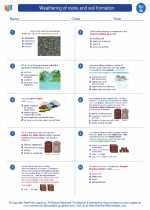Understanding Internal Medicine
- Internal medicine is also known as general medicine and deals with the prevention, diagnosis, and treatment of adult diseases.
- Internists are physicians who specialize in internal medicine and provide comprehensive care to adult patients.
- Internal medicine covers a broad spectrum of conditions including heart disease, diabetes, gastrointestinal disorders, and respiratory illnesses.
- Internists are trained to manage complex and chronic illnesses, as well as provide preventive care and health education to their patients.
Important Topics in Internal Medicine
Some of the key topics in internal medicine include:
- Cardiology: The study and treatment of disorders of the heart and blood vessels.
- Endocrinology: The branch of medicine that deals with disorders of the endocrine system, such as diabetes and thyroid disorders.
- Gastroenterology: The study of the digestive system and its disorders, including liver and gastrointestinal diseases.
- Pulmonology: The branch of medicine that focuses on the respiratory system and conditions like asthma and chronic obstructive pulmonary disease (COPD).
- Nephrology: The study of the kidneys and their diseases, including kidney failure and hypertension.
- Rheumatology: The branch of medicine that deals with disorders of the joints, muscles, and connective tissues, such as arthritis and autoimmune diseases.
Educational Requirements
To become an internist, one must complete medical school followed by a residency program in internal medicine. This typically takes a total of 7-8 years of post-graduate education and training.
Skills and Qualities
Internists should possess strong analytical and problem-solving skills, as well as effective communication and interpersonal abilities. They must also be detail-oriented and able to handle complex and diverse medical cases.
.◂Science Worksheets and Study Guides Seventh Grade. Weathering of rocks and soil formation
Study Guide Weathering of rocks and soil formation
Weathering of rocks and soil formation  Activity Lesson
Activity Lesson Weathering of Rocks
Weathering of Rocks  Worksheet/Answer key
Worksheet/Answer key Weathering of rocks and soil formation
Weathering of rocks and soil formation  Worksheet/Answer key
Worksheet/Answer key Weathering of rocks and soil formation
Weathering of rocks and soil formation  Worksheet/Answer key
Worksheet/Answer key Weathering of rocks and soil formation
Weathering of rocks and soil formation  Worksheet/Answer key
Worksheet/Answer key Weathering of rocks and soil formation
Weathering of rocks and soil formation  Vocabulary/Answer key
Vocabulary/Answer key Weathering of rocks and soil formation
Weathering of rocks and soil formation  Vocabulary/Answer key
Vocabulary/Answer key Weathering of rocks and soil formation
Weathering of rocks and soil formation  Vocabulary/Answer key
Vocabulary/Answer key Weathering of rocks and soil formation
Weathering of rocks and soil formation  Vocabulary/Answer key
Vocabulary/Answer key Weathering of rocks and soil formation
Weathering of rocks and soil formation 

 Activity Lesson
Activity Lesson
 Worksheet/Answer key
Worksheet/Answer key
 Worksheet/Answer key
Worksheet/Answer key
 Worksheet/Answer key
Worksheet/Answer key
 Worksheet/Answer key
Worksheet/Answer key
 Vocabulary/Answer key
Vocabulary/Answer key
 Vocabulary/Answer key
Vocabulary/Answer key
 Vocabulary/Answer key
Vocabulary/Answer key
 Vocabulary/Answer key
Vocabulary/Answer key

The resources above cover the following skills:
LIFE SCIENCE
Unity and Diversity
Analyze and interpret data for patterns of change in anatomical structures of organisms using the fossil record and the chronological order of fossil appearance in rock layers.